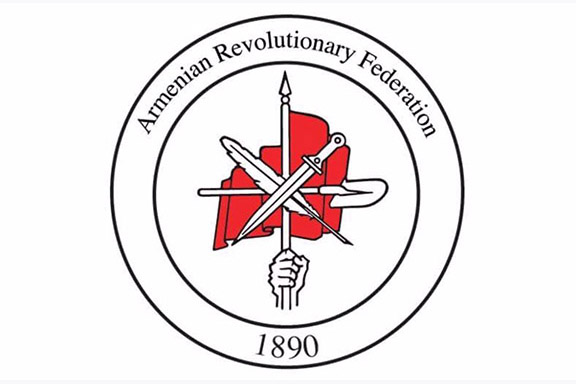ARF Bureau Issues Announcement Regarding Armenia-Azerbaijan Normalization, Treaty
- (0)

The Armenian Revolutionary Federation Bureau on Monday issued an announcement regarding the ongoing normalization talks between Armenia and Azerbaijan and the eventual treaty that will emanate from the negotiations.
Below is a translation of the ARF Bureau announcement.
Having following the negotiation process between the republics of Armenia and Azerbaijan and having assessed the statements from high-level officials of both country, we would like stress the following:
- As part of the effort to agree on a treaty, Azerbaijan is aiming to de jure affirm its annexation of Artsakh and some territories in the Republic of Armenia, which it usurped through the use and threat of force and ethnic cleansing, and has refused the return of those territories in order to force more concessions on Armenia;
- Essentially, through such a documents, Azerbaijan is attempting to put an end to the Artsakh issues. Furthermore, threats against Armenia have been on the rise and the Republic of Armenia is not being given more guarantees for its security, territorial integrity, sovereignty and the unblocking of transport routes. Effective mechanisms that will enable to stop future provocations by Azerbaijan — including military attacks — are not being created.
Under these circumstances and given the current realities, the normalization of relations, based on defending national and state interests, must advance according to the following principles:
- In an effort to create an atmosphere of trusts, the withdrawal of Azerbaijani forces from the sovereign territory of the Republic of Armenia, as well as the return of all prisoners of war and detainees, the resolution of existing humanitarian issues and the preservation of cultural heritage must serve as preconditions;
- In order to establish lasting peace, for the eventual agreement to become a comprehensive document that regulates relations, it is imperative that the document contains provisions that respect the legal interests of the parties and include solutions that apply to the totality of issues that become subject to agreement;
- No agreement should endanger the inalienable rights of the Armenian people. It is necessary to refrain from significant concessions and succinctly advance our interests in accordance with the current Constitutional of the Republic of Armenia, based on international norms and diplomatically accepted procedures;
- The basis for the border delimitation and demarcation process should reflect the actual borders at the time of Azerbaijan’s membership to the CIS (September 24, 1993). The delimitation and demarcation process between the two countries must comply with the best international practices and norms and must be based on the “UN Vienna Convention on the Law of International Treaties” (1969), the “Helsinki Final Act” (1975) and the “Delimitation and Demarcation of State Boundaries: Challenges and Solutions” (2017) of the OSCE Secretariat, including the principle that any international agreement reached or implemented through the threat of force will become null and void;
- The complete and simultaneous unblocking of transportation and other routs, without any restrictions to sovereignty.
Until the final political settlement of the Artsakh issue and the complete enforcement of the fundamental rights of the Artsakh people, the collective, unimpeded and safe return of Artsakh Armenians to their homeland, based on the complete respect of the rights of the people who were oppressed and forcibly displaced due to ethnic cleansing, must be ensured.
Precondition to be considered for the Artsakh Armenians:
- Granting an intermediate status to Artsakh, ensuring the civic and political rights of Artsakh Armenians guaranteed by international norms, in their full scope;
- Providing effective security guarantees for the people of Artsakh, including the deployment of peacekeeping forces;
- Ensuring unimpeded land connection with Armenia.
Any document signed without observing these principles will not contribute to the establishment of peace and stability in the region, but will reinforce the precedent of resolving issues by the use and threat of force.
ARF Bureau
February 5, 2024



















